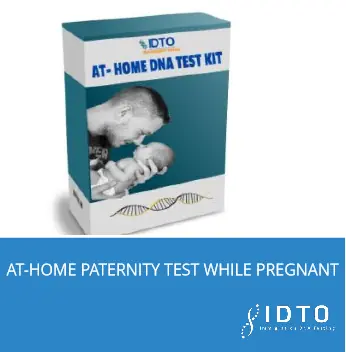Do At-Home Paternity Test While pregnant exists?
While there are currently no at-home prenatal paternity tests involving fetal cell collection (like amniocentesis or CVS), non-invasive prenatal paternity (NIPP) tests offer a different option. NIPP tests analyze cell-free fetal DNA (cffDNA) found in the mother’s blood and compare it to the alleged father’s DNA collected through a cheek swab.
Key points to remember about NIPP:
- No healthcare professional needed for blood collection: Certified phlebotomists can collect the mother’s blood sample, potentially even at home depending on the provider.
- Not a DIY test: While the blood draw might be convenient, NIPP itself is not an at-home test. The sample analysis requires specialized laboratory processing
- Accuracy considerations: NIPP tests are generally accurate, but their margin of error can be higher than invasive methods like CVS or amniocentesis, especially in early pregnancy.
- Not legally admissible in court: While NIPP results can provide valuable information, they are not generally accepted in court for establishing paternity for child support, custody, or inheritance purposes. Only court-ordered tests conducted by accredited labs meet legal requirements
Types of prenatal paternity tests:
- Non-invasive prenatal paternity tests (NIPP): These use the mother’s blood to collect fetal DNA fragments and compare them to the alleged father’s cheek swab. They are accurate but require specific conditions (typically 9+ weeks pregnant) and are not legally admissible in court.
- Amniocentesis and Chorionic Villus Sampling (CVS): These are invasive procedures with potential risks that obtain fetal cells directly and offer conclusive results. They require a doctor’s order and might not be recommended without a specific medical reason.
Crucial points to remember:
- Medical considerations: While NIPP is considered safe, amniocentesis and CVS carry small risks of miscarriage and other complications. Always consult a doctor and understand the potential risks before choosing either option.
- Accuracy considerations: The accuracy of NIPP tests can vary depending on gestational age and other factors. Ensure you understand the margin of error associated with the specific test you choose.
- Professional guidance: Consult a doctor or genetic counselor to discuss your individual situation regarding amniocentesis and CVS to, understand the implications of each option, It should also be noted, OBGYN’s will not perform these procedures for paternity testing only.
Conclusion:
At-home prenatal paternity tests are not currently available to public. But blood draws for mother can be performed at home depending on the company’s service. If you are performing a NIPP test with a DNA Testing company that offers service make sure they explain to you the pros and cons of the process.


